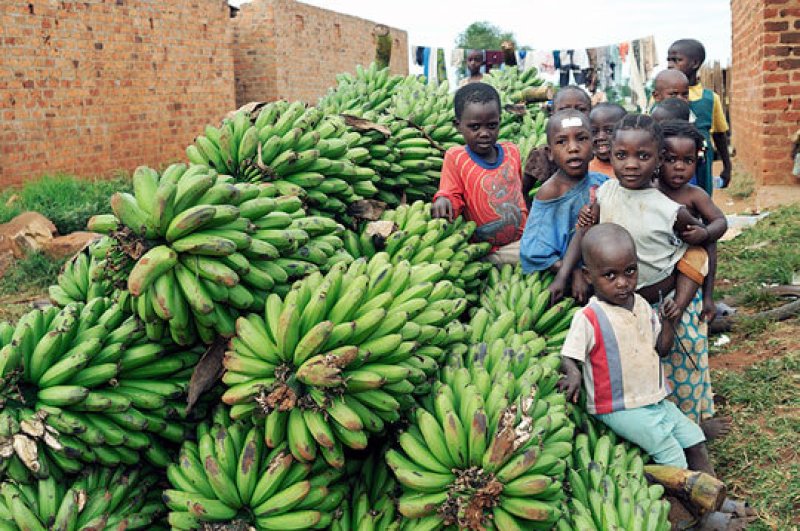After an afternoon drizzle, Ephraim Muhereza carefully scouts his three-acre banana plantation in Gayaza, Wakiso district, plucking male buds from trees. This will stop his plants from catching the notorious banana bacterial wilt, which has destroyed many farms in Uganda.
“We have been told that to reduce the spread of the wilt. We have to cut them so that bees that visit them don’t spread the disease,” he says.
But the introduction of a law in October could solve the problem for Muhereza and his fellow farmers. After five years of deadlock, parliament passed the national biotechnology and biosafety bill, paving the way for the cultivation of genetically modified crops in Uganda.
Trials for a GM banana variety, which is resistant to wilt and contains vitamin A, have been ongoing since 2004 in an effort to improve production. The law will mean this crop can be released to the public.
…
Scientists say the GM banana will fight vitamin A deficiency. In Uganda, on average, 30% of people do not get enough of this vitamin, [Priver Namanya Bwesigye, a plant biotechnologist at the National Agricultural Research Organisation] says: the World Health Organization classifies the situation as grave if 15% of the population is deficient.































